- Learning time
- 40 minutes
- First play time
- 120 minutes
Gutenberg
Designed by: Katarzyna Cioch,Wojciech Wiśniewski
In Gutenberg, players represent early advocates of the printing press, completing orders to score points. Each order demands the use of typesetting, but you can add in ink and the use of special abilities to make them more rewarding. How it all works is via a series of secret bids over the game’s six rounds.
The shared board basically is an array of the things you are bidding for – orders, inks, improving abilities, improving printing houses, and patronage. Before we go through them all, let’s take a look at a printing house: each player has their own in front of them and it tracks both their abilities (typesetting, woodcutting, binding and illuminating) and their gears. You can have up to three gears in your printing house, that rather nicely interconnect via cogs and turn at the start of each new round. The gears are there to provide bonuses: free ink, for instance, or the ability to buy type cheaply. You begin with three letters but can buy more at any time, assuming you can afford it: your fourth letter costs four coins, your fifth costs five and so on. Each gear can be used once per round.
Back to the main board: Gutenberg has a bidding system where players secretly bid a certain amount of cubes to take a particular action. If you’ve bid the most on orders, for instance, you get to choose before anyone else (ties are broken in turn order). If you bid no cubes at all, you don’t get to take an order! Once orders have been taken, then the same process goes for inks, then improving your abilities, taking gears to add to your printing house (which can be activated straight away!) and finally patronage. Patronage initially means a freebie: a free order, ability improvement, some cash or some ink. But as the rounds pass buy you can impress a patron by having met the ability requirements they expect, and you can claim a Patron card: worth a not-inconsiderable 8 points at the end of the game.
After all the actions have been resolved, all players can fulfil orders. Each order is a combination of typesetting and ink/abilities, but on the typesetting part is mandatory: the flourishes are optional. However they’re worth doing if you can, as they’ll bring you in a big points haul, especially if you manage to complete all of it. You get to keep your letters, but lose the ink. Everything left on the board (except patron cards) is removed and restocked for the next round. The starting player moves clockwise and everyone gives one of their bidding cubes to the player who just passed it on. This way the starting advantage is counter-balanced by each subsequent player having one more cube than those who went before them.
After six rounds, the players add any Patron cards points to their scores, and the player with the most points wins.
The guru's verdict
-
Take That!
Take That!
Not entirely absent: although no turn is completely unproductive, you can be outbid on things you wanted and end up picking up the comparative dregs.
-
Fidget Factor!
Fidget Factor!
After that first play, it's reasonably paced with 2 or 3 once everyone knows what they're doing. But like almost any game it can slow if you have players prone to ruminating.
-
Brain Burn!
Brain Burn!
The nub is easy: complete orders! However Gutenberg has enough going on around that simple heart to keep things interesting: not least, the bidding.
-
Again Again!
Again Again!
Orders always come out randomly, and you can also add in special characters who give each player a unique advantage: start with two gears! One ink colour is wild! And so on. If you like the programming aspect of the gears, that has a lot of variety as well

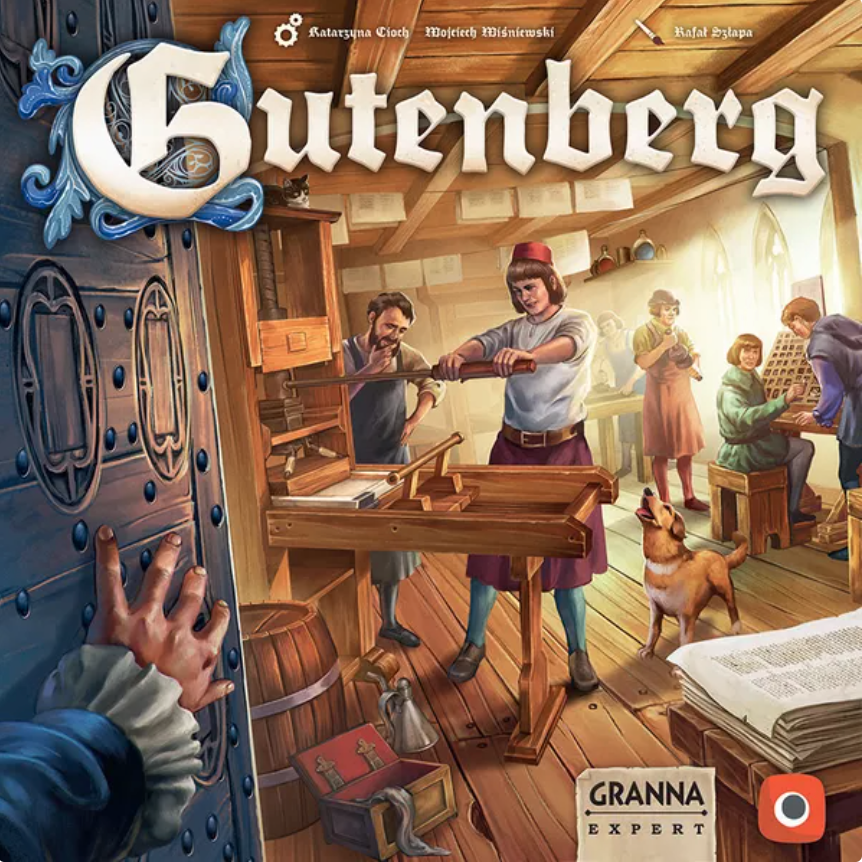
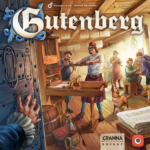
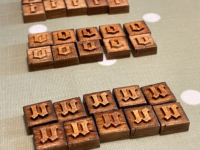
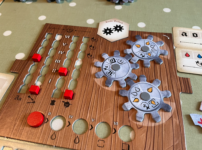
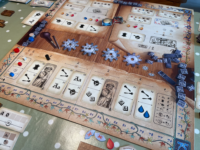
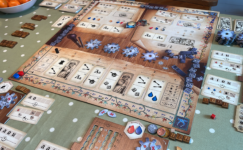


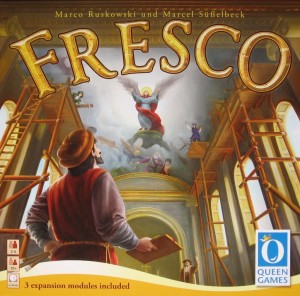
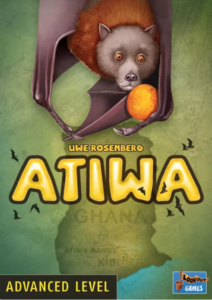
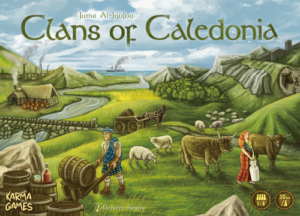
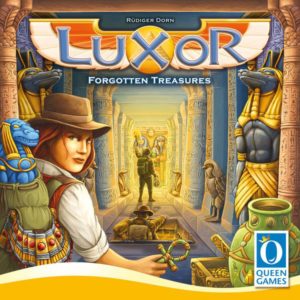

Sam says
I'm pretty sure I've moaned elsewhere on GNG about a game where you complete orders feeling a little too much like work. But I think Gutenberg sidesteps the daily grind for three reasons: it's not as complicated as it first appears (-the gears do take a bit of getting used to) it looks rather delightful (-especially the gears) and crucially, the bidding keeps things interesting between the players: you're not so much working in different places as different departments, each with designs on the company resources. Each player can only have a maximum of four active orders so you can, should you choose, look around the table and see what people are after and play accordingly/dastardly. Or you can just focus on your own thing and try to maximise your returns whilst hoping no-one gets in your way. The game is a canny little thing, quite neatly put together, and manages to not feel like work. When fulfilling orders is fun, you know something is right.